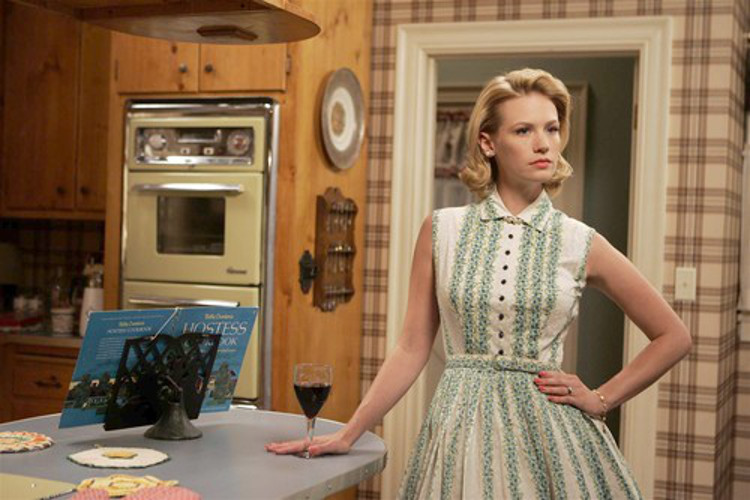Modern Marriage vs the Modern Feminist
I recently read an article about the toll of emotional labour on women in relationships. It’s a great read and I’d recommend it to anyone. The topic, of course, got me careening down the rabbit hole that is the Internet, and I stumbled upon an abundance of other articles written by women on the same topic.
Emotional labour is the idea that women are expected to serve – unpaid and unrecognised – as the support system for a man’s unchecked emotions, and in male-to-female relationships, it’s just one more example of the many negative side effects of stereotypical gender roles.
With all the progress we’ve made in the past few decades, there is one thing that hasn’t really changed a whole lot, and that’s the gender construct tied to heterosexual marriage. It’s cool, for example, that many women don’t have to take a man’s last name anymore, but there’s no denying that the antiquated customs and views from bygone eras are still very much prevalent in our society’s view of marriage today.
Both genders are still at least semi-expected to perform according to stereotypes that were created many years ago and are not necessarily relevant anymore.
Homemakers
Remember this super cute part of Ireland’s constitution? You know, the one that literally designates women as homemakers:
“The State shall, therefore, endeavor to ensure that mothers shall not be obliged by economic necessity to engage in labour to the neglect of their duties in the home.”
This notion is highly outdated, as more women are in the workforce than ever before. Yet, time after time, we see that traditional gender roles still expect women to be homemakers, too. This is where the emotional labor comes into play.
Men and women may be working the same amount of hours in the day, but women are still often assumed to be the ones who cook dinner and do housework every day when they get home. Meanwhile, men are generally assumed to be responsible for off-hand “manly” household chores like fixing a leaky faucet.

Stay-at-home moms often feel responsible for having the house ready when their husband comes home from work. This isn’t necessarily true of all modern-day households, but it’s definitely still happening all over the country and world. After work is often assumed to be the man’s time to unwind – the weekends usually are, too – while the wife is never necessarily able to count on a pre-determined and expected break to look forward to.
Employers often view a married man as someone stable and responsible. He has a wife and maybe children to support, so he’s going to be responsible, work hard and stay at his job.
However, it’s much different for women. Studies show married women are at a double disadvantage. Instead of having the reputation for being stable and responsible like men, married women are at a disadvantage with employers. Many companies assume a married woman is going to start having children, which means maternity leave, followed by them putting their children above their career.
Providing
Society expects men to be the breadwinners – and research suggests that they struggle when they’re not. The risk of divorce is actually 32 percent higher when the man in the marriage isn’t working full-time. The belief that they’re supposed to be the ones taking care of the family is so deeply ingrained in us that it’s no wonder their egos take a hit when they aren’t.
More than 70 percent of adults say it’s important for men to be able to support a family financially to be a good partner. But less than a third say the same about a woman. It’s drilled into the heads of most of society that men are expected to be providers and, therefore, higher earners.
Tradition says that men are supposed to spend one month’s salary on an engagement ring. Others say two or three months’ worth of salary. Regardless, men are expected to drop thousands on this piece of jewellery that is really nothing more than an antiquated and superfluous tradition. And yet, there is a lot of pressure and too many expectations to live up to.
And then there’s the whole question of, “What if we break up? Then what happens to it?” Of course, no one wants to think they’re going to break up with the person they’re proposing to. But it happens. Then they have to worry about being out thousands of Euros for a ring that holds negative memories and bad juju, and is also now even more meaningless than it already was. The whole concept of engagement rings is honestly ridiculous in my humble opinion, especially in the modern era.
From dad to husband
There’s also the pretty creepy matter of the father giving away the bride at the wedding. Effectively, this practice is passing the possession of the daughter from the father to the groom. It stems from times when women were literally objects, and the father received money or a dowry in exchange for his daughter.
However, dads giving away brides is still a totally common practice in weddings today that way too few people seem to see as odd. Most families see it as a heartfelt tradition, and there are plenty of YouTube videos of teary-eyed fathers giving their daughters away.
As heartwarming as that picture seems, nothing changes the fact that the fundamental concept of the custom is weird and dates back to a completely sexist era nobody should want to go back to. Women aren’t property. Their father or husband doesn’t own them – and neither does anyone else. If people still want to do it, that’s a personal choice that I respect. But I’d say it’s far past time to stop seeing this tradition as an expected necessity at every wedding we attend.

LGBTI+ marriage was recently legalised in my country (the U.S.), and one of the greatest things about these weddings is that there isn’t really a “playbook” as far as the rules and customs of marriage goes. They’re reinventing the old rules and coming up with new ones. There aren’t really as many sexist stereotypes that they feel forced to fulfill, such as one person feeling the obligation to wear a white dress, or one person being expected to buy the ring.
It’s wonderful, too, that with same-sex couples, traditional gender roles aren’t really a thing. After all, you can’t expect your wife to do all the housework when there’s no woman in the relationship. The marriage can be more of a partnership without all those stereotypes filling couples’ brains. It encourages both partners to work together and find a balance that works for them, instead of just assuming one person will be the breadwinner and the other the homemaker.
Modern-day heterosexual couples could learn a lot from the LGBTI+ community. Without socially constructed expectations, marriages could be happier and more successful. We’ll never know unless we start working to make it less of a phenomenon when couples go against the grain. It would be cool to throw out some outdated traditions, start our own new ones and see the effects that could have on marriage success.
Feature Image Source
